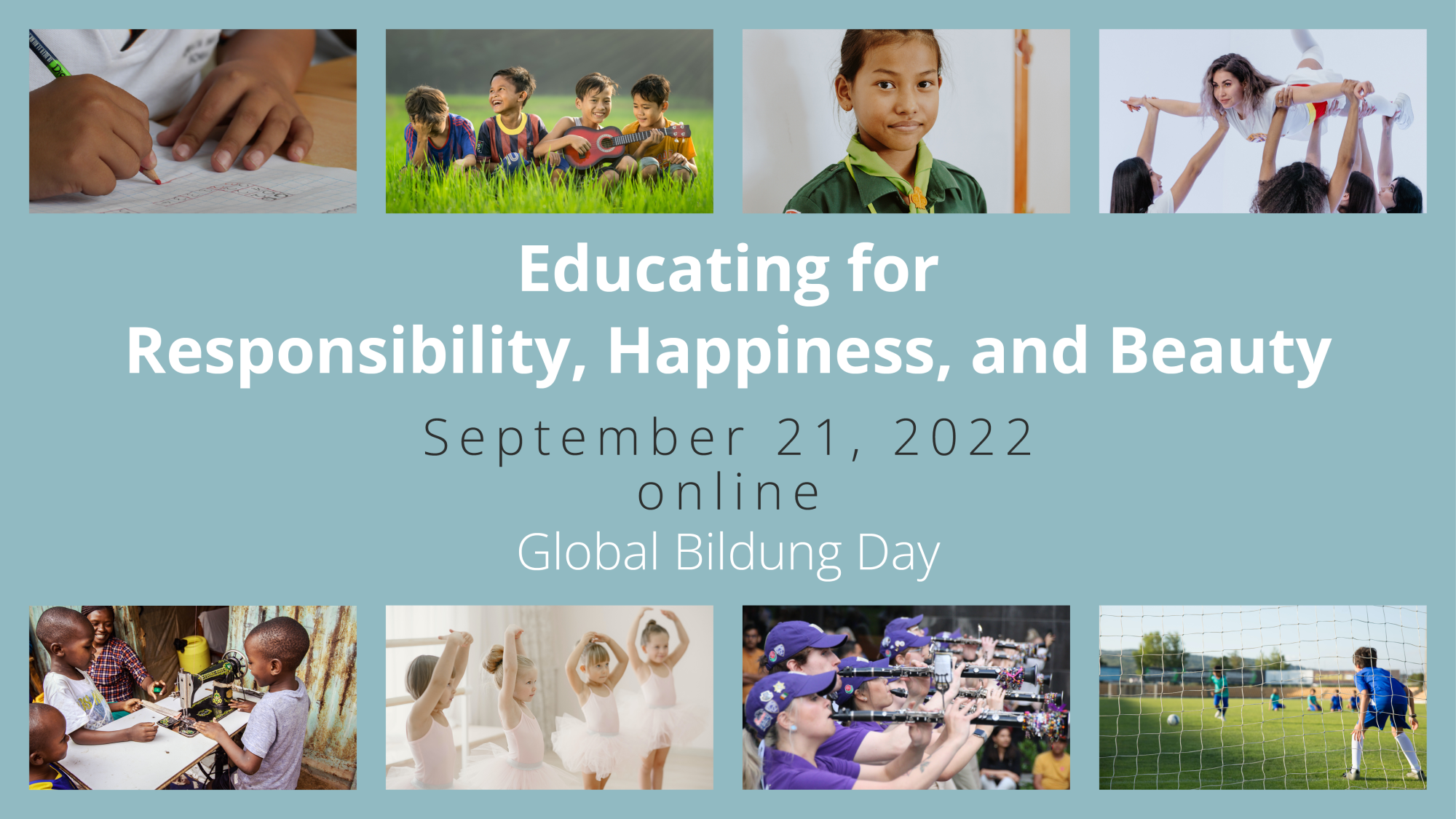
The Global Bildung Day, on the September Equinox of 2022, is a worldwide gathering of bildung advocates, experts, teachers, students; all united to support the quality of life, human and nonhuman, through universal education for daily life for all ages. Join us as we define the knowledge and responsibilities that allow us to flourish and live happily.
Here you can read about all the speakers and their presentations;
alphabetically by first name
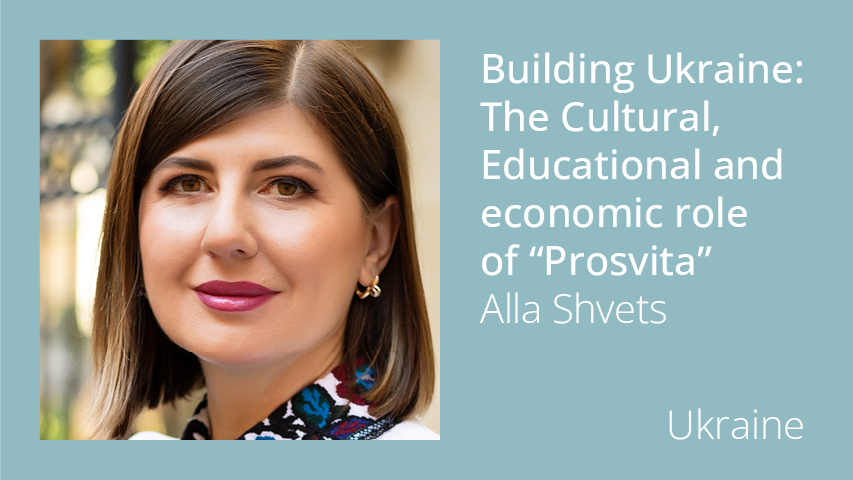
Building Ukraine: The Cultural, Educational, and Economic Role of “Prosvita”
The project will highlight the activities of «Prosvita» in the second half of the 19th century and the interwar period, as well as its role in scientific and cultural development, formation of national consciousness and consolidation of society. The basis of scientific research will be archived documents, memories, correspondence, periodicals and books published by «Prosvita». Among the main aspects of the project are research of different generations of «Prosvita» activists, creating intellectual biographies of its most famous representatives, analysis of the literary production of «Prosvita» and its significance for development of the cultural and educational process, the cooperation of «Prosvita» with other political and civil institutions of that time in Ukraine, international activities of «Prosvita» centers abroad.
Alla Shvets
Ukraine, Lviv – Doctor of Philology, Deputy director of the Ivan Franko Institute of the National Academy of Sciences of Ukraine. Researcher of the literary and cultural processes in Ukraine in the 19th and 20th centuries, history of the women’s movement, problems of literary generations, gender studies and biographical studies. The author of more than 100 publications, including the monograph «A Woman with Ariadne’s Gift : The Life Path of Nataliia Kobrynska in Generational, World View and Creative Dimensions» (2018). The latter won a National award «Ukrainian Book of the Year» in 2018 здобула перемогу на всеукраїнському конкурсі «Книга року» (2018).
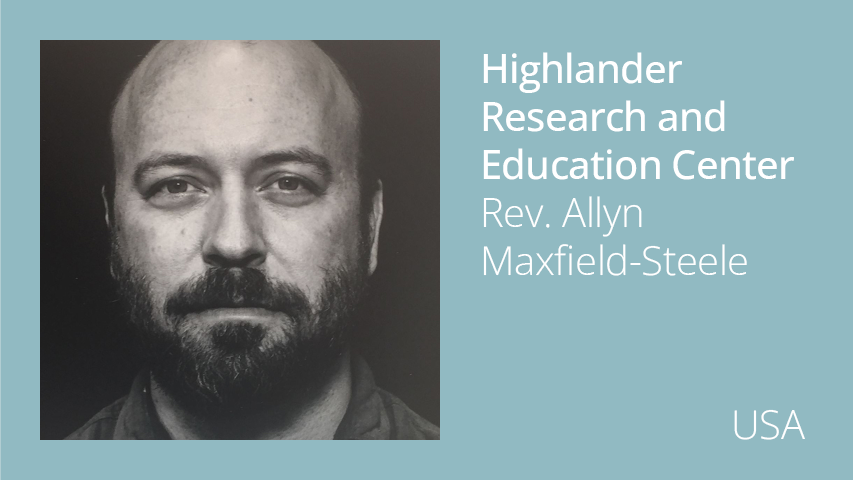
Highlander Research and Education Center
In 1932, Myles Horton and others founded the Highlander Folk School in Monteagle, Tennessee. They focused first on organizing unemployed and working people, and by the late 1930s Highlander was training union organizers and leaders, and fighting segregation. In 1961, the state of Tennessee revoked Highlander’s charter and seized its land and buildings, but the school reopened the next day as the Highlander Research and Education Center. In 1972 it moved to its current location near New Market, Tennessee. Highlander has since centered on the experiences of directly-impacted people in our region, knowing that together, we have the solutions to address the challenges we face in our communities and to build more just, equitable, and sustainable systems and structures. Our workshops and programming bring people together across issues, identity, and geography to share and build skills, knowledge, and strategies for transformative social change.
Rev. Allyn Maxfield-Steele
has been Co-Executive Director of the Highlander Research and Education Center since 2017. Raised in Texas, Germany, and North Carolina, he comes from a family of multitudinous professions and small-town Protestant church folk of the southern Piedmont and southern Atlantic coast. Between 2002-2004, he lived alongside leaders of the people’s movements of Northeast Thailand, which transformed Allyn’s understanding of the power and purpose of education. Since then, his movement work connects people and grassroots communities through high school and college education, faith and spiritual leadership, and organizes on front-lines throughout the US South and Appalachia. He is committed to understanding how people and organizations transform together and how rural people can cooperate to teach everyone how to build powerful movements. Allyn lives in Western North Carolina with his spouse, Erin, and their child, Ursa.
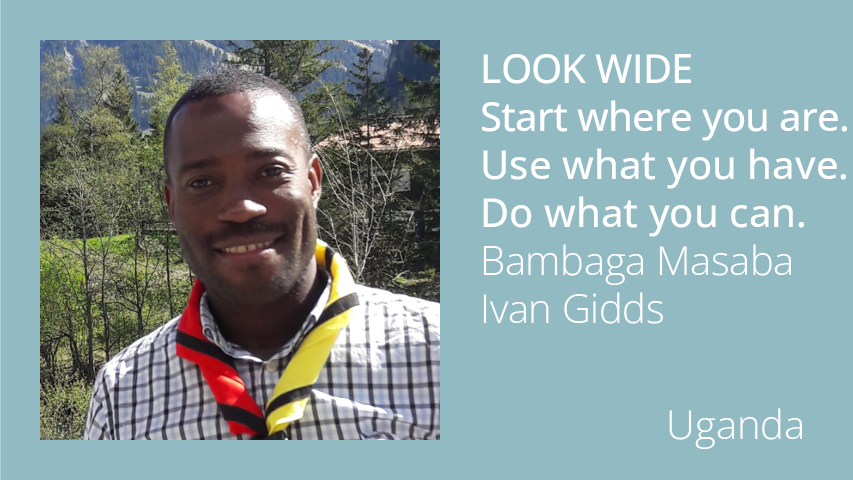
Mercy Scouts
Mercy Scouts works in Uganda directly with young people and local less privileged communities to change lives, empower youths and build communities. Our projects are: Scouts for safe water, Scouts restore sight, Support every Child, E.A.G.L.E.S(Ever ambitious girls lead effectively in society), Scouts for Nature and Scout fight Malaria with aim to reduce on the burden of malaria through our activities which are divided into three elements; (education, data collection and free mosquito nets distribution).
Our works are in relation to the scouts principles to which we adhere. (Duty to self, duty to God and duty to others).
Bambaga Masaba Ivan Gidds
I am Bambaga Masaba Ivan Gidds. A visionary, A scout, philanthropist and a coffee farmer. Coffee is my God-given sources of income as am from a generational coffee farming family. This coffee provides a gateway to accessing food, shelter, health and eduction services not only to my family but to the communities I support. Am also the founder and director of Mercy Scouts International which I founded in 2009 and it was registered and recognized by the government of the republic of Uganda in 2015.
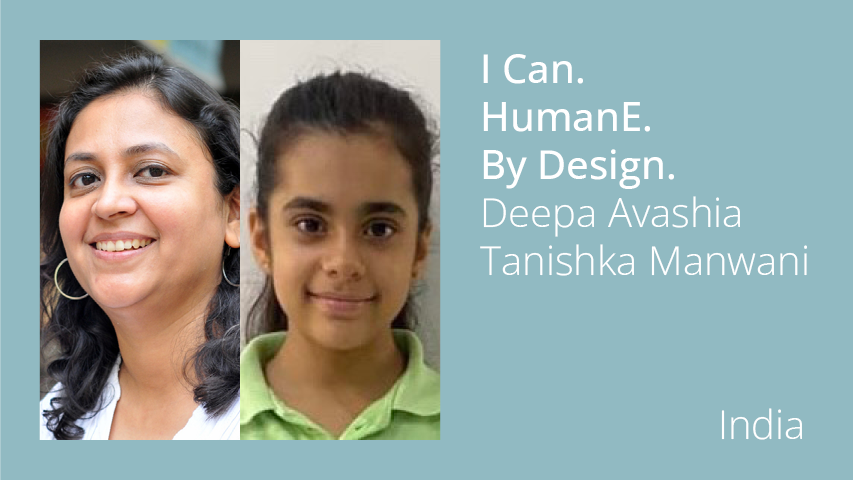
I Can. HumanE.
By Design.
Design is a powerful tool of perpetual renewal, Deepa uses the process of co creation and iteration to continue to test and action ideas that energises the teaching practice.
As a master trainer, Deepa now works with school leaders to transform their schools using a systems thinking approach, thereby impacting the lives of children beyond Riverside.
Deepa Avashia
Deepa Avashia is a School Leader at The Riverside School – Riverside Education Foundation, Ahmedabad.
An avid reader, her love with education started 15 years ago prompted by the need to find the right education for her own children. What started as an interest in learning has now become a deep compelling passion to uncover and discover the constructs of how the mind acquires understanding.
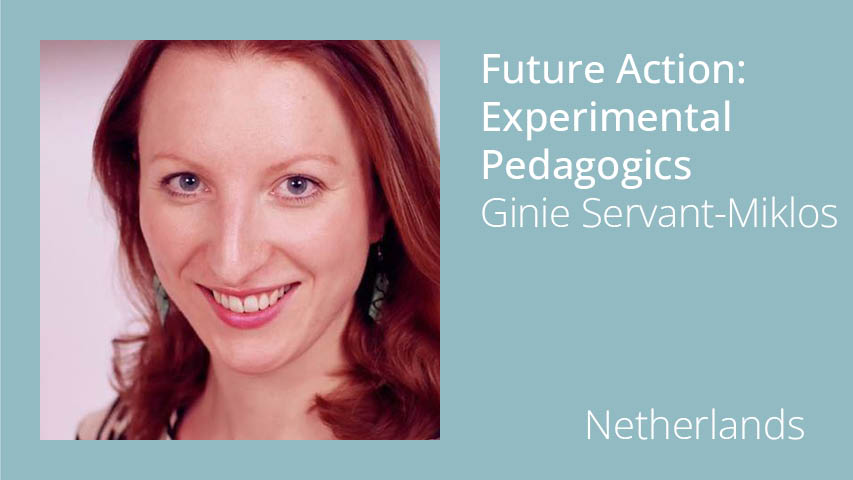
Future Action: Experimental Pedagogics
We are living through extraordinary times. The climate is warming, biodiversity is collapsing, pandemics are disrupting daily life, racial, gender and socio-economic inequality are sparking global protests. Education is failing to keep up, reactive rather than proactive. We can’t teach for the future with the methods of the past. So how do we get proactive education innovation that moves fast, is effective, and scalable? Let students design future-proof learning. That’s why Dr. Ginie Servant-Miklos developed Experimental Pedagogics (XP).
In XP, student teams research socially-relevant educational challenges from primary school to university, then build educational interventions to address this. To support the projects, an Education Track provides a broad educational training, with inputs from cognitive psychology, education history, philosophy, technology, psychodynamics, environmental education and critical pedagogy. XP stimulates transformational learning through experimental pedagogies like problem-based learning, jigsawing and design-based learning. A Reflection Track grounds students’ learning through journaling, peer-reflection and workshops.
Ginie Servant-Miklos
Dr. Ginie Servant-Miklos is an Assistant Professor at the Erasmus School of Social and Behavioural Sciences in Rotterdam, The Netherlands. Her core areas of academic expertise include education psychology, education philosophy, pedagogy, climate and environmental education, and inclusive education. She is a member of the UNIC consortium of Universities in post-industrial cities, and Senior Fellow of the Comenius Network of the Dutch National Education Research Council. She is also the founder and chair of the executive board of the FairFight Foundation, a Dutch non-profit founded in 2015 to empower girls and women from underprivileged communities through karate. The foundation currently runs programs in Zimbabwe, Zambia and India.

Community Garden in the School Yard
Hannah and Erin will speak about their learnings and experiences over the past five years implementing an innovative and holistic initiative in schools in Aotearoa NZ. The aim is to include more vegetable gardens, sensory areas, native plantings, art and sculpture and most importantly culturally connected spaces that provide educators, kids and communities greater opportunities for meaningful interactions and connections. Their approach involves supporting school communities to reimagine, transform and better use their outdoor spaces, and the aim is to improve outcomes of education for both children and communities. They’ll share stories of success and learnings and talk about where to next.
Hannah Simmonds
& Erin Green
Erin Green is co-founder of Te Puna Taiao and lives in Whakatāne with her partner and four young children. She has a Master’s degree in Marine Science and has worked in environmental and social policy areas. Erin is passionate about looking after our amazing natural world and helping build communities that help each child to thrive.
Hannah Simmonds is a Māori educator who has taught science across a range of contexts over the last 20 years. She is passionate about maximising opportunities within education so that Māori children can experience more equitable outcomes. She lives with her husband Brad and three children in Whakatane, NZ.
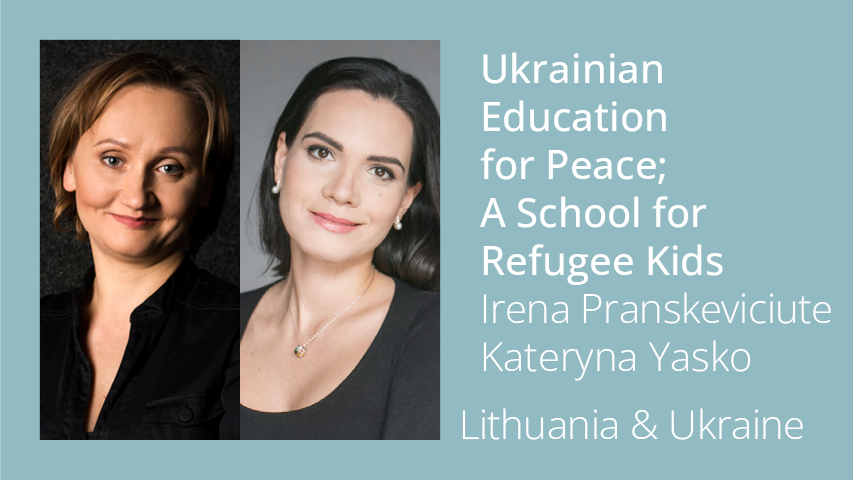
Ukrainian Education for Peace: A School for Refugee Kids
What is the role of education during wartime? Global school contribution to safety and peace. How should education embrace the fragmented world’s complexity by shifting from inclusion to co-creation? How could education curricula respond to multiple social challenges: mental health and trauma, ethnocentricity, unemployment, and poverty? Case of GRAVITAS SCHOLA (Lithuania), school and community for the war refugees: challenges in building extended school ecosystem enabling Bildung of children, adults, families, communities, cities, and societies.
Irena Blaževičė
Irena Blaževičė is a co-founder of Gravitas Schola (Lithuania), the school and community for war refugees, challenging the mainstream policies. Irena is a Ph.D. and researcher in community resilience to shocks, a facilitator for nationwide system transformations; a leadership coach, helping organizations implement TEAL approach. Irena supported the development of more than 40 schools into learning communities and consulted state institutions on education system development.
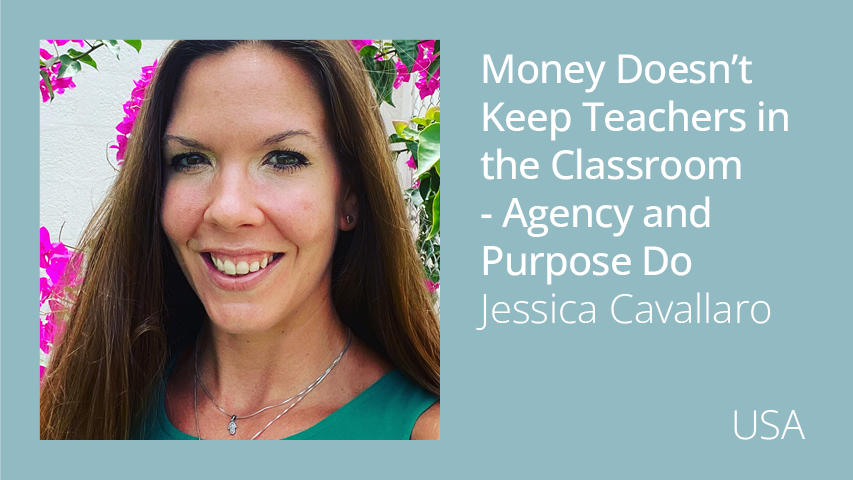
Money Doesn’t Keep Teachers in the Classroom
— Agency and Purpose Do
The Agile Mind is a mindset more than a business. We coach teachers how to transform their curriculum from a push-based to a pull-based system. With agility, educators use the same assignments, activities, labs, projects, assessments, etc. You will not throw all of your great resources away. You just learn how to reorganize and deliver them in a more effective way to your students. You will do it in small chunks that they, themselves will access and “pull” at their own cadence, and when they need it. It is not a new thing for teachers to learn. It is an alternative way to facilitate how your students will learn content and be able to apply it.
Jessica Cavallaro
Jessica Cavallaro is an educator, innovator, and change-maker in education. She discovered Agile as a solution to keep her students connected, collaborating and creating while distance learning and it transformed her pedagogy. Jessica believes that education should be messy, collaborative, and engaging. She has always been an early adopter of techniques that will bring more student agency and active learning in the classroom. She is highly trained in implementing project-based learning and design thinking. Jessica is passionate about pushing education to evolve to meet the needs of today’s students. She believes that education should always be purposeful and adaptable, providing skills and relationships that will benefit students as they grow.

Ukrainian Education for Peace: A School for Refugee Kids
What is the role of education during wartime? Global school contribution to safety and peace. How should education embrace the fragmented world’s complexity by shifting from inclusion to co-creation? How could education curricula respond to multiple social challenges: mental health and trauma, ethnocentricity, unemployment, and poverty? Case of GRAVITAS SCHOLA (Lithuania), school and community for the war refugees: challenges in building extended school ecosystem enabling Bildung of children, adults, families, communities, cities, and societies.
Kateryna Yasko
Kateryna Yasko (Ukraine) is an organizational psychologist, educator, mediator and Nonviolent communication trainer. She is a founder of a public association “International Institute for Integral Development” (IIID), educational platform Empatia.pro and co-founder of the consulting company U-Integral, focusing on leadership development, trust-building, cooperation and peaceful conflict resolution in the teams of business organizations and educational institutions.
In March 2022 Kateryna and her family moved to Vilnius. She is currently working with the community of the Ukrainian war refugees, supporting educators, women and children during their temporary stay in Lithuania. Kateryna was a scientific editor of the translation of “The Nordic Secret” into Ukrainian and is currently organizing group readings of the book among Ukrainians.
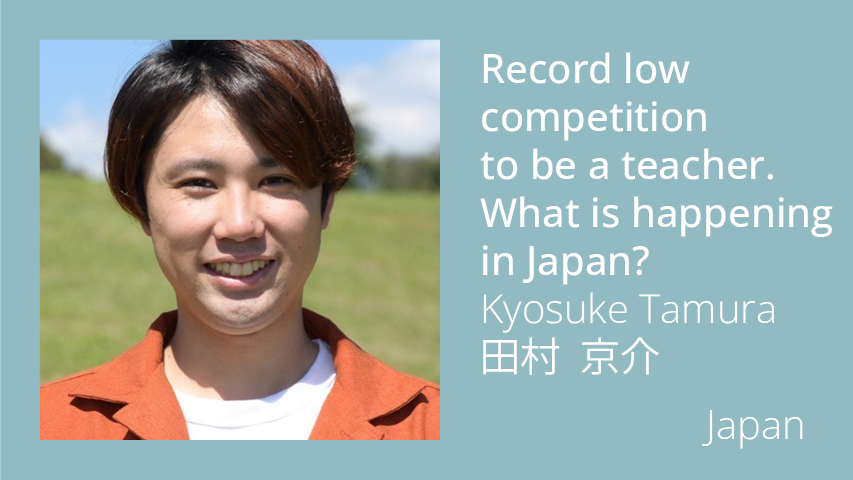
Record low competition to be a teacher: What is happening in Japan?
To become a teacher, one used to have to pass through a fierce competition 20 years ago in Japan. However, schools are suffering from being understaffed, and more undergraduates in education department decide not to be a teacher for several reasons. This presentation shows you what problems Japan have surrounding teachers and education, based on some data and subjective points of view from somebody who used to be a teacher.
Kyosuke Tamura
・Studied English teaching and social study in the field of education, especially working environment for teachers, in university in Japan
・Studied abroad in Finland and became interested in correlation between social well-being and teachers’ occupation well-being
・An English teacher at high school for a year
・Established an alternative school based on the concept of Finnish education for a year
・Self-employed English teacher online (Now)
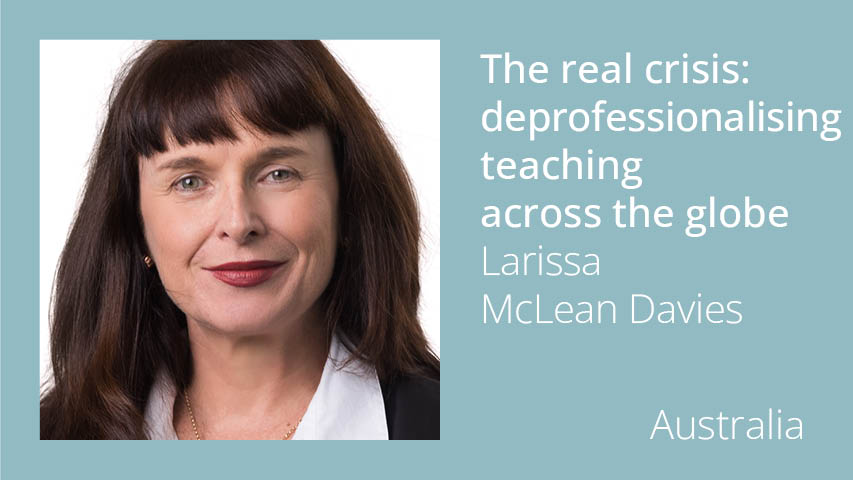
The Real Crisis: Deprofessionalising Teaching Across the Globe
Info on its way…
Larissa McLean Davies
Info on its way…

Opportunity Through Visibility
A music school turned into a cultural foundation within a brazilian “favela”, Instituto Unidos de Paraisopolis is a non-profit initiative dedicated to form and transform children and young adults in the second largest community of Sao Paulo, Brazil.
Acacio Reis is the “maestro”, teacher and founder behind it, committed full-time to turn a lot of potential and talent into better lives, full of possibilities through music, culture and technology classes.
Marcello Barcelos
Our company, Barça, is extremely proud of being part of the Unidos de Paraisopolis movement. We expect Acacio Reis’ example to be an inspiration all over the world and a guiding light to other people in doing good for many, many others.
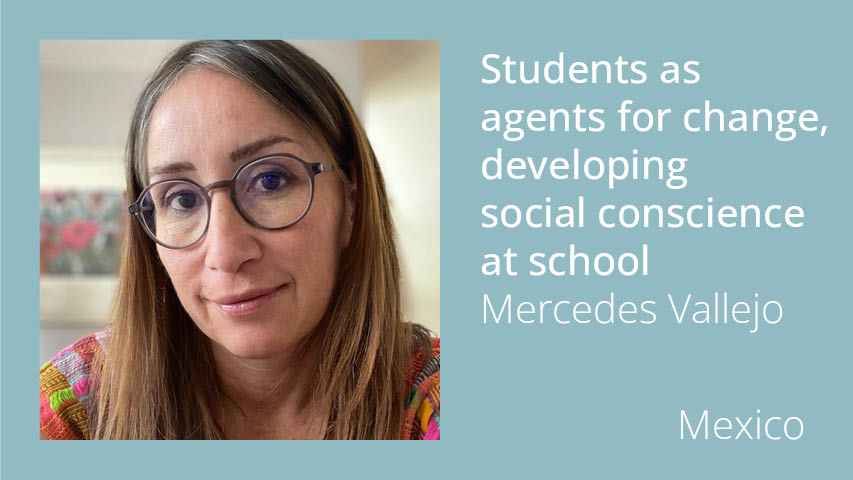
Students as Agents for change: Developing Social Conscience at School
Info on its way…
Mercedes Vallejo
Info on its way…
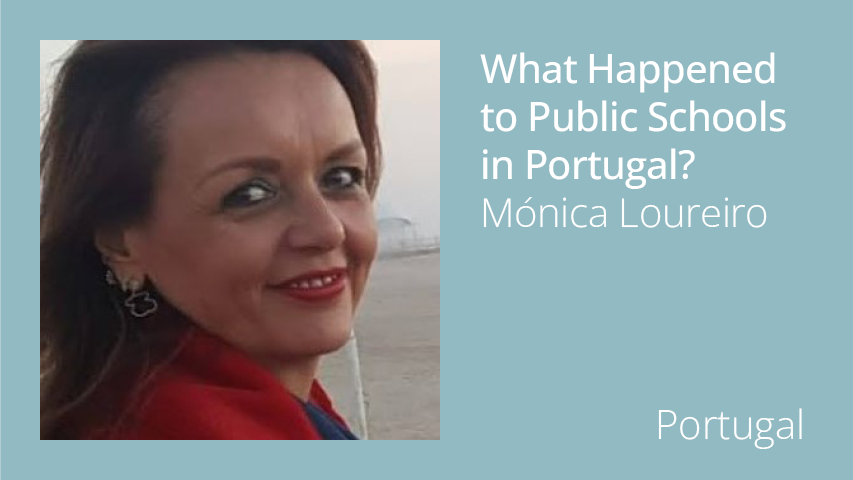
What Happened to Public Schools in Portugal?
A society that does not invest in the education of its children has no future. Yet teachers are the most outraged and demonised class in Portugal. Everyone wants free, quality, public education, but nobody sees this class with the prestige and respectability that it deserves. There is a big difference between having knowledge and knowing how to teach. And we are all capable of putting our worst teachers in the first category and the best in the second. The truth is that our students, our future generations, increasingly need teachers who have pedagogy at their fingertips and these are becoming an endangered species…
Mónica Loureiro
French teacher since 1994, Mónica Loureiro graduated in Modern Languages and Literature – French and German, from the Faculty of Letters of the University of Porto in Portugal. Since 2006, she has been co-author of French textbooks, for 3rd cycle of education, for Porto Editora.
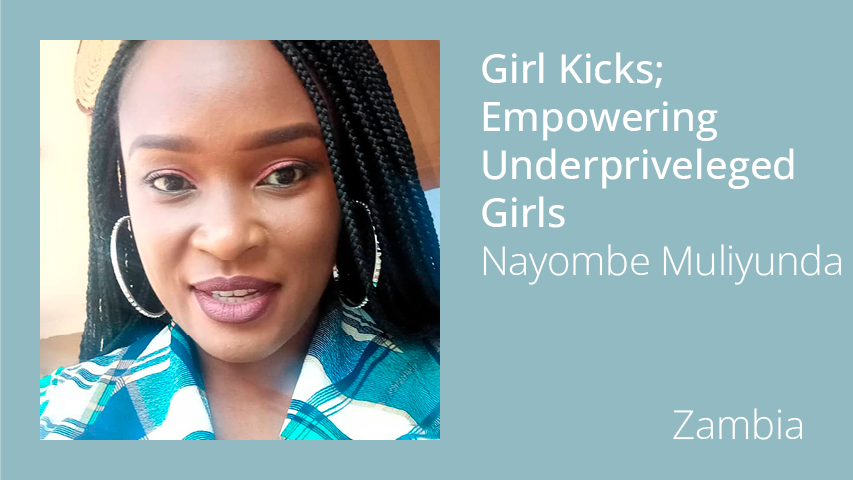
Girl Kicks: Empowering Underprivileged Girls
GIRL KICKS Foundation is aimed at empowering underprivileged girls with life skills and Education. We are in collaboration with FairFight, a sister foundation based in Holland and shares the same values, who are our major sponsor. We were also very fortunate enough to get funding from Kwok Meil Wah foundation, which has helped fund our Back to School project. So far we have taken 15 girls back to school and have provided uniforms, shoes, books and writing equipment.
Basic necessities such as uniform, shoes etc, still put the girl child at a disadvantage of attending class even with free education. But that is not all, we aim to train the girls as karate athletes good enough to compete in local and international tournaments. Empower them with self defense skills because they come from a very rough area where drug abuse, gender based violence is the order of the day. With the discipline that the sport brings, we hope that we will be able to turn the girls into athletes that are academically sound and responsible members of society.
Nayombe Muliyunda
My Name is Nayombe Martha Muliyunda, 43yr old mother of four, and the founder of Girl Kicks. I have experience both worlds of society. I know what it means to be privileged and underprivileged. The misfortune of losing my mother at the age of 11 and the hardships I faced as result, shaped me into this strong woman you see today.
Strong, courageous and stubborn enough not to conform to what African society dictates what a woman should be. This helped me excel in karate which is predominantly male, were I was often the only female in the dojo. I am 4th Dan black belt in Shoryn-yu Karate. Currently the highest ranked female Karateka in Zambia. First and only woman to run a Dojo where I teach Karate for all ages. Sports radio presenter, Studied Marketing and worked as an Insurance Broker for 10yrs. Very passionate about sport and education.
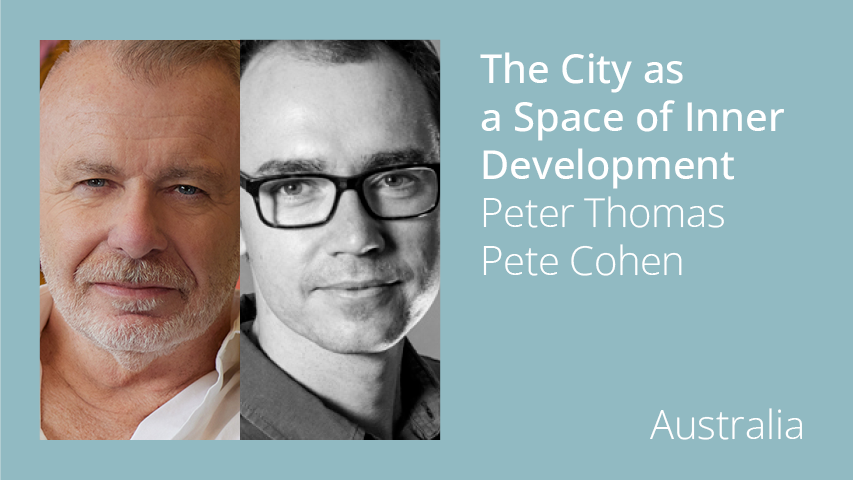
The City as a Space of Inner Development
RMIT University FORWARD, The Centre for Future Skills and Workforce Transformation
https://medium.com/rmit-forward
The heart of learning, from schools to adult education, is traditionally understood to beat through its curriculum, a tightly circumscribed experience, framed by courses, credits, assessments and certificates that crystallizes the learner’s interests into a qualification.
At RMIT FORWARD, informed by, and learning about, the central tenets of bildung, and inspired by examples such as the programmes run by The Bildung Academy, we are starting an experiment to radically expand the notion of curriculum, and learning and skills, into something broader by reimagining the city, the places we gather, through which we move and live and which provide the backdrop to our social, community and working lives, as an everyday skills environment, infused with learning, curiosity, meaning, collaboration, community and personal development. We see skills not in an instrumental light – locked into the infrastructure of institutions – but in the form of guided missions, free-flowing, participant-driven, communally delivered, collaborative and designed in-the-moment.
As we recognise, bildung can come from these moments – facing the right challenges, being with the right people, at the right time and in the right place. Life, in all its messy complexity, is a classroom for inner development, and increasingly the only way to really learn and harness skills of all kinds is to be actually immersed in the complexity of life while working towards a tangible and important goal. Learnable moments require the right tangible conditions to enable people to fully embrace them.
Our CityMakers Melbourne project, the first in a series of international projects, is the canvas for this manifold reimagining, and for learnable moment, and into which we will integrate the tenets, and practical applications of building. We will work with civic and educational institutions, with educators, community activists, with policymakers and with those organisations who design, build, maintain our cities. The CityMakers project is open to anyone – from the entrepreneur who seeks advice and support in building new ventures to the citizen who wants to learn new everyday skills – and we aim to provide an environment to support learning in the school of life, and when there is skin in the game, rather than in the classroom.
Peter and Pete will talk about CityMakers and how we are drawing on the principles, tenets and applications bildung.
Peter Thomas &
Pete Cohen
Dr Peter Thomas is director of FORWARD, The RMIT University Centre for Future Skills and Workforce Transformation. He was formerly a charitable foundation co-founder CEO, a technology business CTO, a consultant and a professor of information management. He was educated at Leeds, Cambridge and Hull universities.
Pete Cohen is a systems innovator ad collaboration strategist and a development partner at FORWARD. He works with teams and large groups to tackle corporate challenges, raise social awareness and build capability for the future, drawing upon a background in psychology, communication, music, business and technology to lead and marshal people from different functions, disciplines, organisations and sectors to work together on projects with a common purpose.
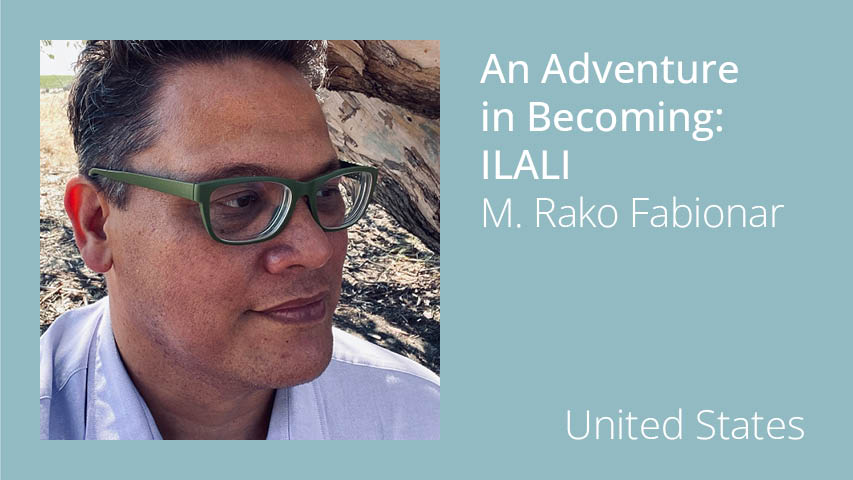
An Adventure of Becoming
In January 2023, ILALI will begin Wayfinder, its pilot program for young adults. This immersive residency supports young adults, their communities, and the lands they inhabit to create regenerative relationships. Young people from the same region but from different backgrounds will reside at a retreat center for several months to live and grow together. The program is designed to improve well-being, expand one’s worldview, cultivate inner wisdom and the moral imagination, and deepen relationships with others and nature. We have been working for the last year to develop and fully fund this deeply transformational experience for young adults poised for their own “Adventure in Becoming.”
ILALI Homepage: https://www.ilali.global/#top
Support ILALI: https://secure.givelively.org/donate/commonweal/innovative-learning-and-living-institute
M. Rako Fabionar
M. Rako Fabionar has cultivated innovative learning environments for over two decades as a community educator, graduate school faculty member, and change consultant within the USA and abroad. Rako has created educational centers and designed transformative programs that support the insight of connection and well-being for young adults, social entrepreneurs, civic leaders, cultural workers, and spiritual teachers. Rako is passionate about serving the common good through integrative approaches for leadership development, cultural pluralism and social innovation. He is the co-founder and director of Kinship Blooms, and a founding member of Salmon Nation and the Guild of Future Architects.
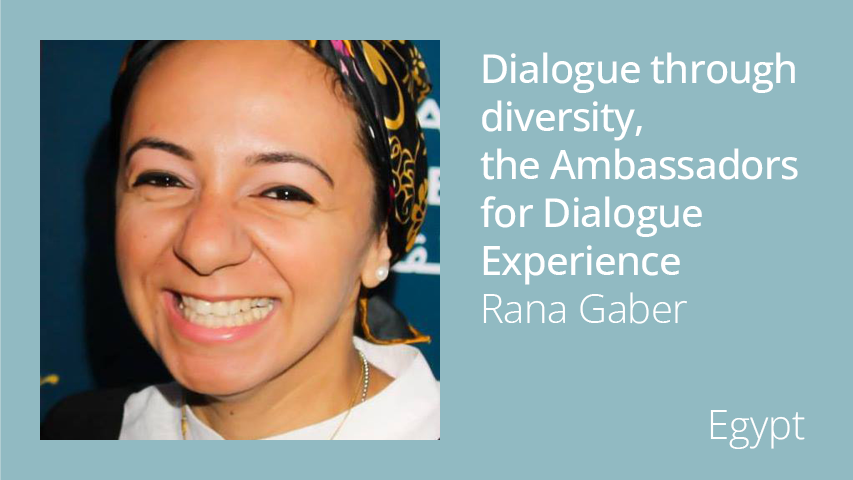
Dialogue Through Diversity; the Ambassadors for Dialogue Experience
Ambassadors for Dialogue is a partnership between Denmark, Egypt, Jordan, and Tunisia. It has been working for 13 years now to promote peaceful coexistence through means of dialogue. We train young people from different backgrounds on how to be in dialogue with themselves, with the other, and how to facilitate dialogue spaces.
Rana Gaber
Rana Gaber, AFD Egypt Project Manager, MSc in Comparative Middle East Politics and Society. Rana is a project manager, a researcher, and a trainer. 15 years work experience in the field of youth development through working in several national, international, and regional NGOs. She specializes in the following fields; nonviolent communication, conflict resolution, Dialogue, gender based violence, sexual & reproductive health, and citizenship education. Rana designed several training manuals in both Arabic & English.
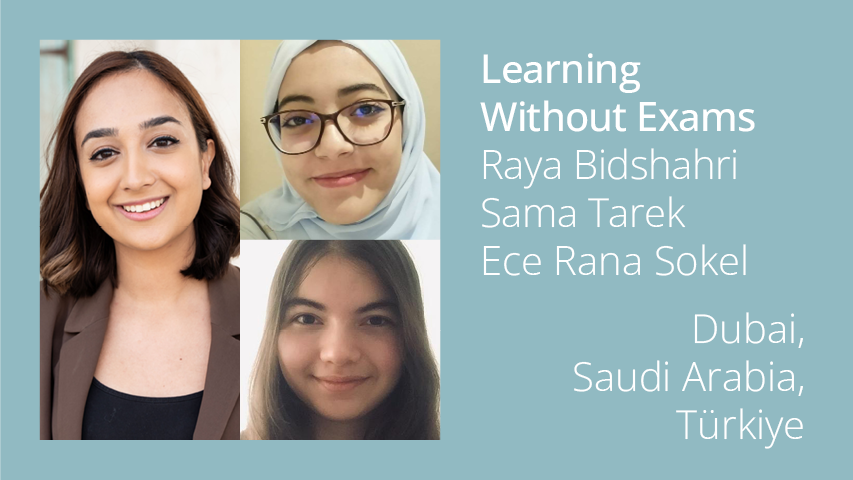
Learning Without Exams
Most traditional high schools rely on lectures and individual assignments focused on discrete and theoretical topics.
We don’t believe in this model.
School of Humanity uses interdisciplinary, personalized learning paths and constant query to create real-world connections and enable deeper understanding.
Each learning path consists of workshops, mentorship sessions, and learning activities that are designed to imbue you with the competencies, mindsets, and behaviors you’ll need to thrive in the world.
Visit School of Humanity: https://sofhumanity.com/
Raya Bidshahri
Sama Tarek
Ece Rana Sokel
Raya Bidshahri is a serial entrepreneur and award-winning educator. She is the Founder and Chief Executive Officer of School of Humanity, an online high school with an innovative learning model and interdisciplinary curriculum. She has been featured by the BBC as one of the 100 most influential and inspiring women globally. Her mission is to reinvent global education systems in order to better serve humanity.
Sama Tarek is from Saudi Arabia; Learner at School of Humanity, passionate about future of medicine
Ece Rana Sokel, from Turkey; Learner at School of Humanity, passionate about Art with Technology
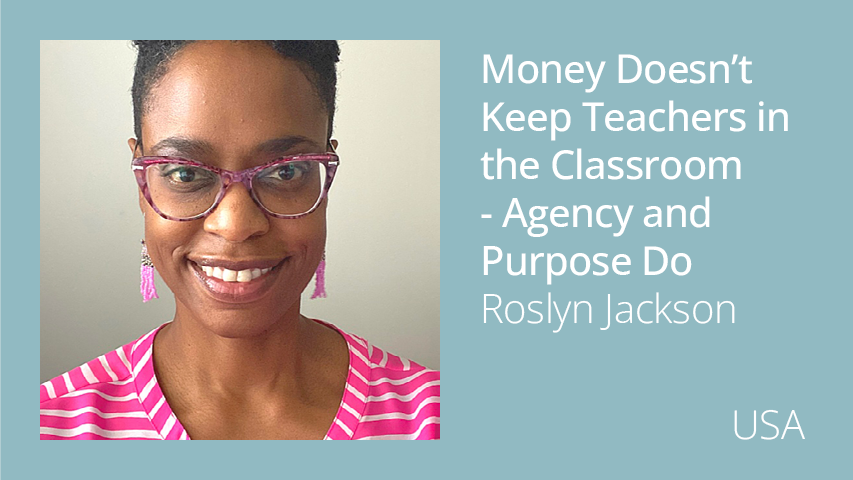
Money Doesn’t Keep Teachers in the Classroom
— Agency and Purpose Do
Roslynn Jackson is passionate about providing purposeful education for students and teachers. She has been an educator for over 18 years. She has learned that when teachers and students know the purpose for what they are teaching and learning they have more motivation to get work done. And when students and teachers are given the freedom and space to create learning paths and teaching strategies that work for them, they are less likely to fail and are more likely to achieve personal and professional goals.
Roslynn Jackson
Roslynn started Agile Mind, which is a mindset more than a business. We coach teachers how to transform their curriculum from a push-based to a pull-based system. With agility, educators use the same assignments, activities, labs, projects, assessments, etc. You will not throw all of your great resources away. You just learn how to reorganize and deliver them in a more effective way to your students. You will do it in small chunks that they, themselves will access and “pull” at their own cadence, and when they need it. It is not a new thing for teachers to learn. It is an alternative way to facilitate how your students will learn content and be able to apply it.
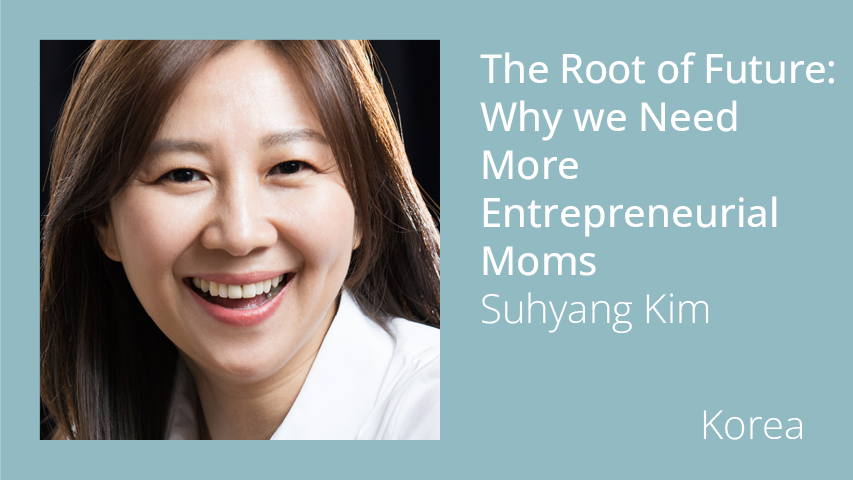
The Root of Future:
Why we Need More Entrepreneurial Moms
nest4Next is a practical – think tank organization that helps people become future ready. Our work is ultimately aiming to nurture the youth generation (we call it Future citizens). To do this, we mainly work and collaborate with “adults” who have a collective responsibility to pass on a better world to the next generation by promoting ecosystem collaboration, with various stakeholders including parents, teachers, entrepreneurs and local & global organizations (such as companies, education offices, schools, universities) and local government. Especially, rooted in the belief that today’s youth need systematized access to skills and networks that support their ‘true’ learning to live their life as a future citizen, nest4Next is trying to build an educational ecosystem and offer a meaning experience to the youth. nest4Next follows a three pronged approach, 1) awareness 2)learning and skill building 3)ecosystem development and advocacy.
Suhyang Kim
After becoming a mother of two, Suhyang Kim wanted to do something meaningful for the next generation who will live with her own children rather than going back to her previous for-profit career. So, she went through an education startup for education related impact creation, worked with the Global non-profit foundation, Ashoka, for about two years building an educational ecosystem in Korea, then founded her own company named nest4Next three years ago.
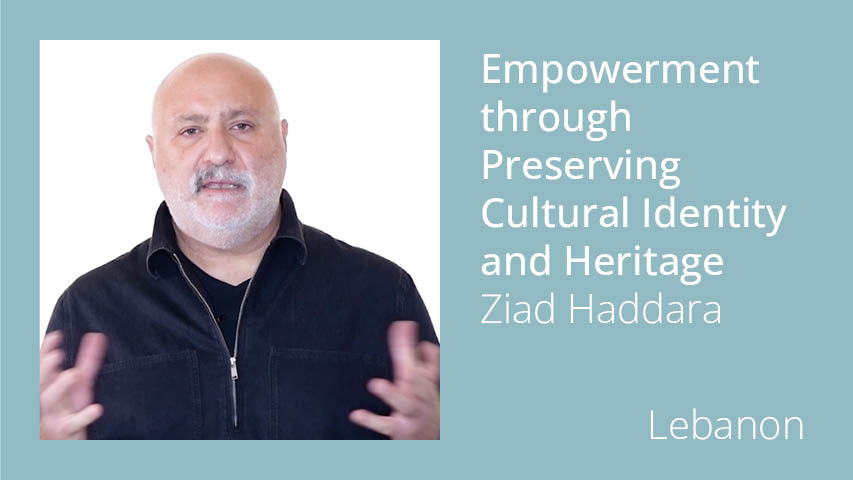
Empowerment through Preserving Cultural Identity and Heritage
In the harsh unforgiving reality of life in a Palestinian refugee camp in Lebanon, working on beautiful traditional hand-embroidered items that are sold through Inaash Association not only provides women with a source of income, but also helps to create a sense of pride in their heritage and self-worth in helping to educate future generations and the world about this heritage.
Ziad Haddara
Ziad Hadara is a specialist in micro-economic development and social entrepreneurship, working with international agencies across the Middle East. He is also the founder of “Find the Goat” (findthegoattravel.com), a service that provides designed trips to destinations around the world.
He is currently the Chairman of NACE (Networking Arab Civic Education https://nacecommunity.org) and on the board of Inaash Association (https://www.inaash.org).
He has experience in several sectors including architecture and design, business management, digital businesses, technology for development, and high-end tourism, and is able to draw from these multiple areas of expertise to create innovative capacity building programs and social business plans.
